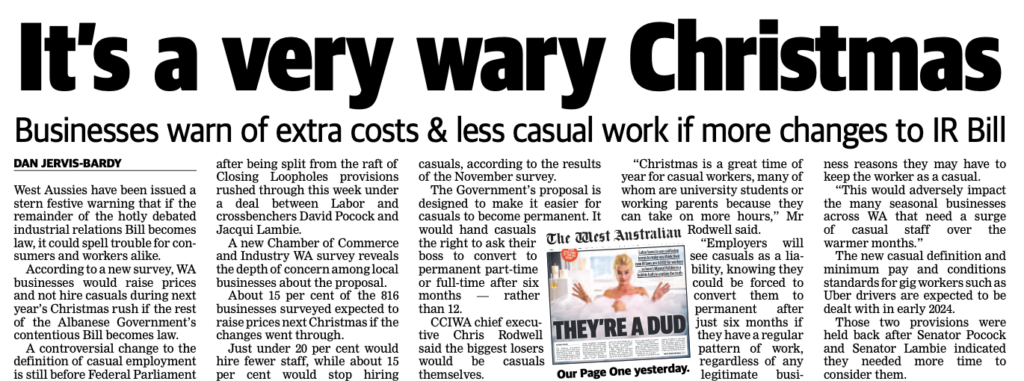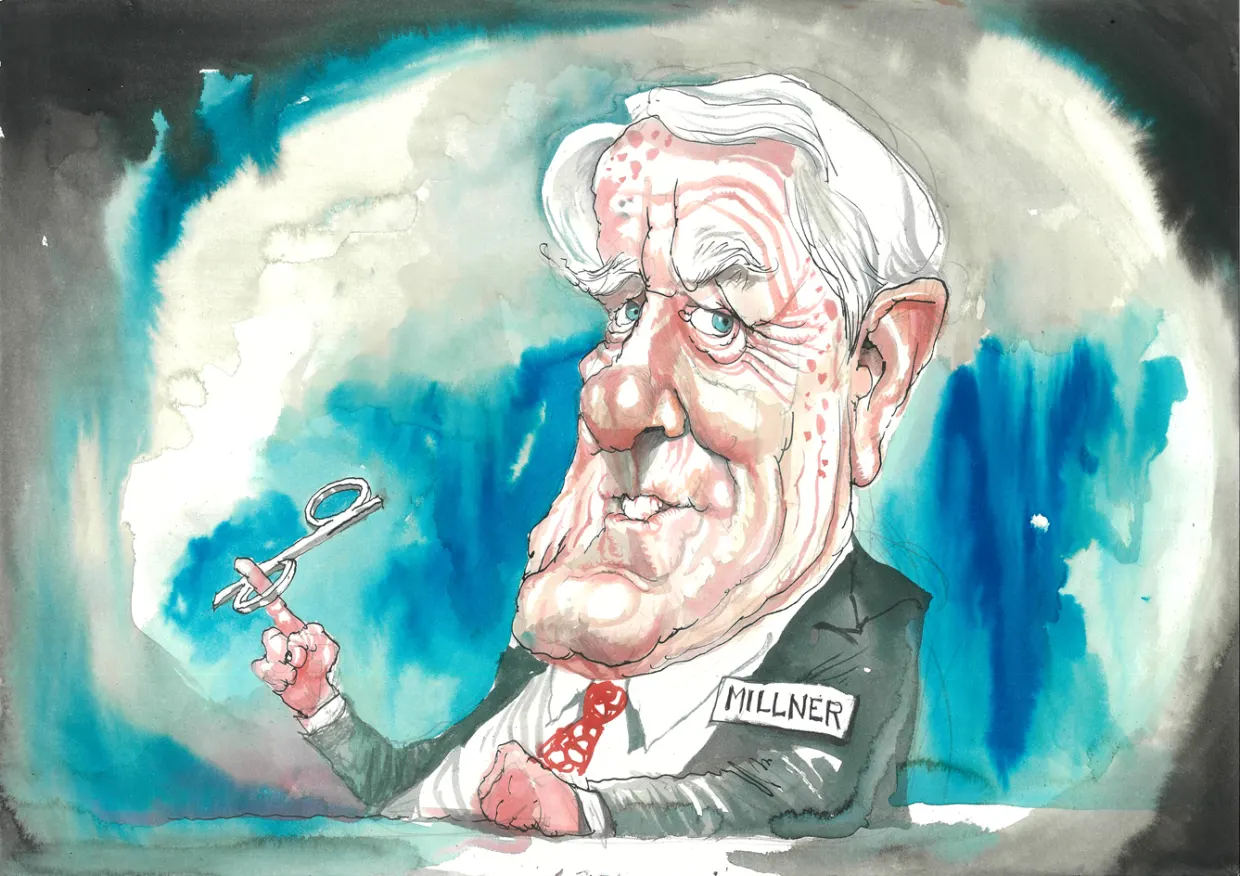


Article by Dan Jervis-Bardy courtesy of the West Australian.
West Aussies have been issued a stern festive warning that if the remainder of the hotly debated industrial relations Bill becomes law, it could spell trouble for consumers and workers alike.
According to a new survey, WA businesses would raise prices and not hire casuals during next year’s Christmas rush if the rest of the Albanese Government’s contentious Bill becomes law.
A controversial change to the definition of casual employment is still before Federal Parliament after being split from the raft of Closing Loopholes provisions rushed through this week under a deal between Labor and crossbenchers David Pocock and Jacqui Lambie.
A new Chamber of Commerce and Industry WA survey reveals the depth of concern among local businesses about the proposal.
About 15 per cent of the 816 businesses surveyed expected to raise prices next Christmas if the changes went through.
Just under 20 per cent would hire fewer staff, while about 15 per cent would stop hiring casuals, according to the results of the November survey.
The Government’s proposal is designed to make it easier for casuals to become permanent. It would hand casuals the right to ask their boss to convert to permanent part-time or full-time after six months — rather than 12.
CCIWA chief executive Chris Rodwell said the biggest losers would be casuals themselves.
“Christmas is a great time of year for casual workers, many of whom are university students or working parents because they can take on more hours,” Mr Rodwell said.
“Employers will see casuals as a liability, knowing they could be forced to convert them to permanent after just six months if they have a regular pattern of work, regardless of any legitimate business reasons they may have to keep the worker as a casual.
“This would adversely impact the many seasonal businesses across WA that need a surge of casual staff over the warmer months.”
The new casual definition and minimum pay and conditions standards for gig workers such as Uber drivers are expected to be dealt with in early 2024.
Those two provisions were held back after Senator Pocock and Senator Lambie indicated they needed more time to consider them.






